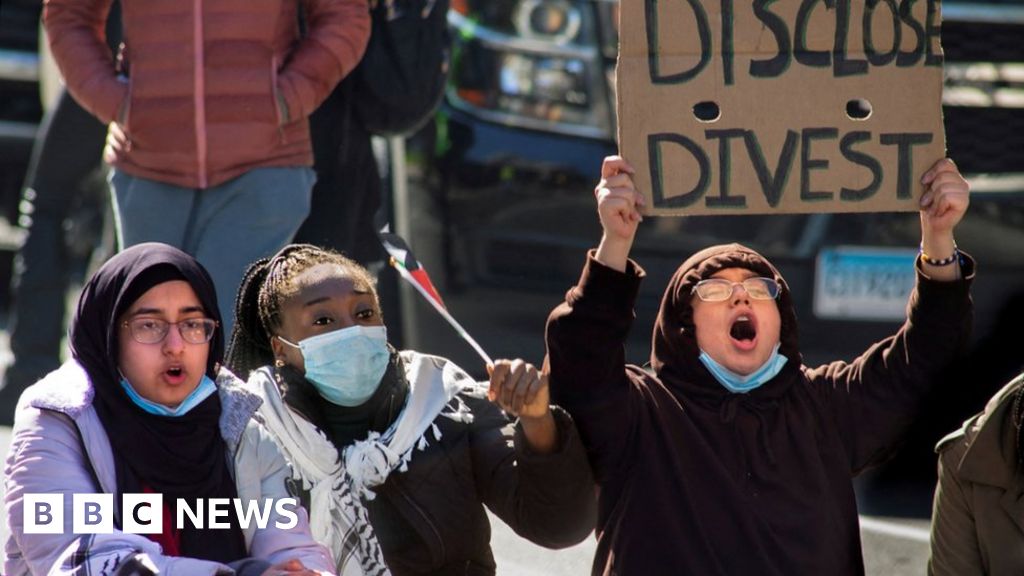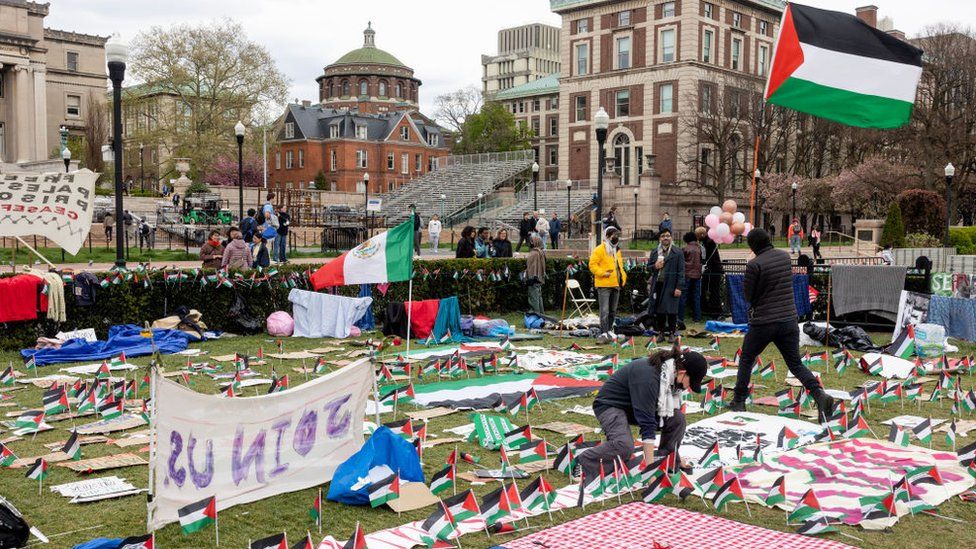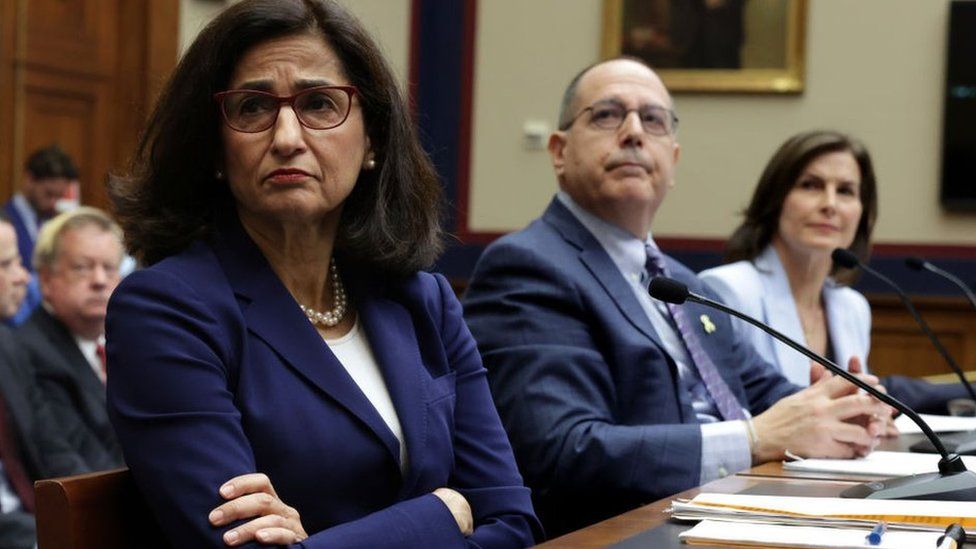This video can not be played
To play this video you need to enable JavaScript in your browser.
Columbia University has extended remote classes at its main New York City campus for the rest of term amid tense Gaza war protests that have spread to US colleges nationwide.
The hybrid learning comes as some students have reported antisemitic harassment around Columbia’s campus.
Some 133 were arrested on Monday in protests at New York University.
Dozens of arrests were also made in rallies at Yale, while Harvard has restricted public access to the campus.
Gaza war protests have also cropped up at colleges in the US Midwest and on the West Coast, where one campus has been closed.
When asked on Monday about the reports of hatred on campuses, President Joe Biden said he condemned both “the antisemitic protests” as well as “those who don’t understand what’s going on with the Palestinians”.
Columbia provost Angela Olinto announced students would have the option of attending classes remotely at the Ivy League institution’s main Morningside Campus until the last day of classes on 29 April.
“Safety is our highest priority,” she said in an email on Monday night.
Jewish students have expressed concern about antisemitism on and around Columbia’s campus.
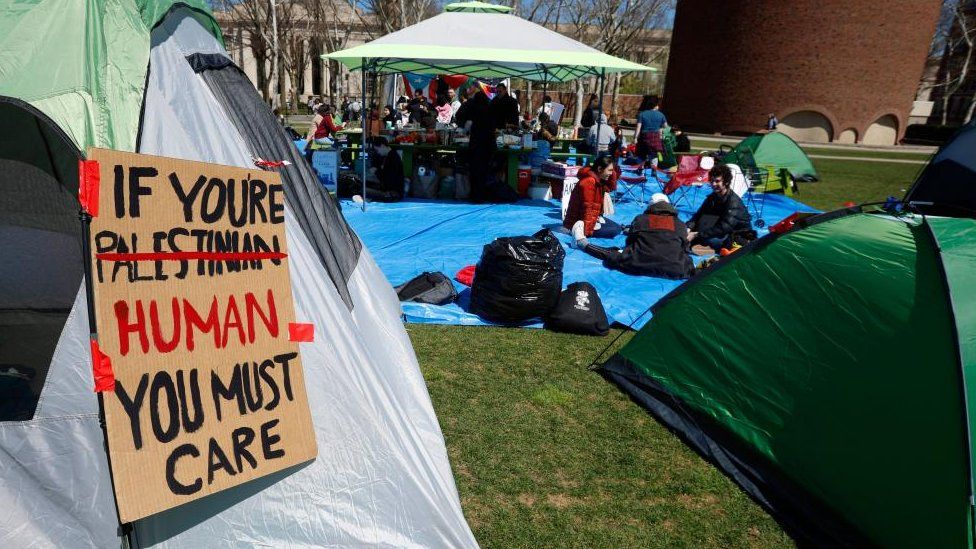
One student filed an NYPD hate crime report on Monday saying that he had been hit in the head with a rock while carrying an Israeli flag, the New York Post reported.
Shai Davidai, a Columbia University professor who has been outspoken about his support for Israel, said he was banned from campus and his ID was “deactivated”.
Columbia Students for Justice in Palestine said they “firmly reject any form of hate or bigotry” and criticised “inflammatory individuals who do not represent us”.
Columbia University President Nemat Shafik said tensions on campus had been “exploited and amplified by individuals who are not affiliated with Columbia who have come to campus to pursue their own agendas”.
Dr Shafik last week defended her efforts to tackle antisemitism on campus as she testified to a US congressional committee.
Also last week New York City police arrested more than 100 people amid Gaza war demonstrations on Columbia’s campus, including the daughter of Democratic congresswoman Ilhan Omar.
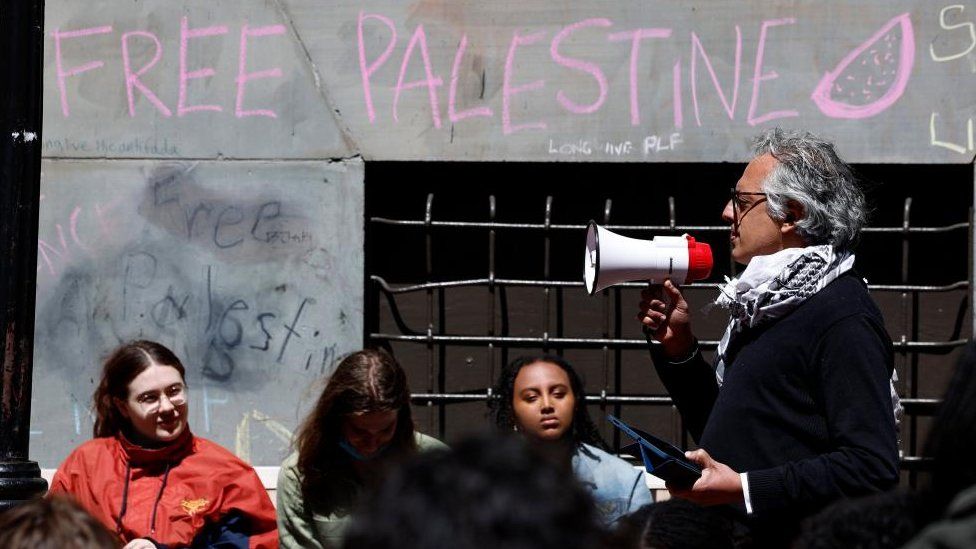
The campus unrest has caused a dilemma for higher education officials as they try to balance free speech rights with the need to maintain a safe and inclusive space for learning.
Police were called to NYU on Monday to break up demonstrations after university officials warned hundreds of protesters to leave.
University leaders accused the group of breaching school barricades and said they were behaving in a “disorderly, disruptive and antagonizing” manner.
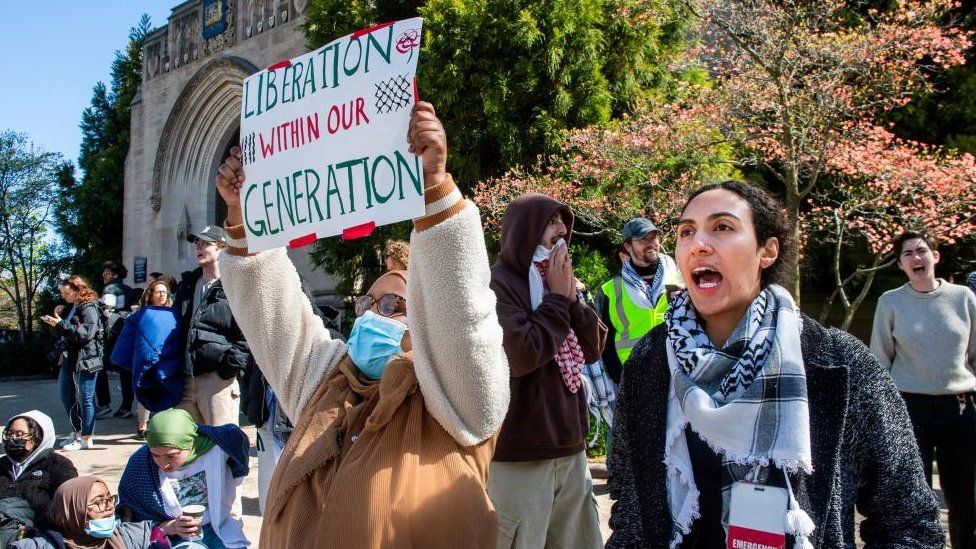
“Unity is power. We’re all here in unity to support Gaza, Palestine,” student Carter Bui told the BBC’s US partner CBS News.
Authorities at NYU also suggested protesters without links to the university had turned up.
Over on the US West Coast, pro-Palestinian students set up “solidarity encampments” on Monday at the University of California, Berkeley, and California State Polytechnic University, Humboldt.
At Cal Poly, the campus has been closed until 24 April due to the “dangerous” situation, school officials said, which included students using tents and beds to blockade one of the buildings.
“The campus community is advised to avoid the area of the building [Siemans Hall], as it is a dangerous and volatile situation,” the university announced.
A similar encampment has been set up at the University of Michigan.
Activists have been calling for universities to “divest from genocide”.
They accuse colleges of using students’ tuition money to invest in companies supporting Israel’s war in Gaza.
Israel strongly denies any suggestion that it is committing genocide in the Palestinian enclave, though the International Court of Justice has said the accusation was “plausible”.

Are you a student in the US? Please share your experiences by emailing haveyoursay@bbc.co.uk.
Please include a contact number if you are willing to speak to a BBC journalist. You can also get in touch in the following ways:
- WhatsApp: +44 7756 165803
- Tweet: @BBC_HaveYourSay
- Upload pictures or video
- Please read our terms & conditions and privacy policy
If you are reading this page and can’t see the form you will need to visit the mobile version of the BBC website to submit your question or comment or you can email us at HaveYourSay@bbc.co.uk. Please include your name, age and location with any submission.
